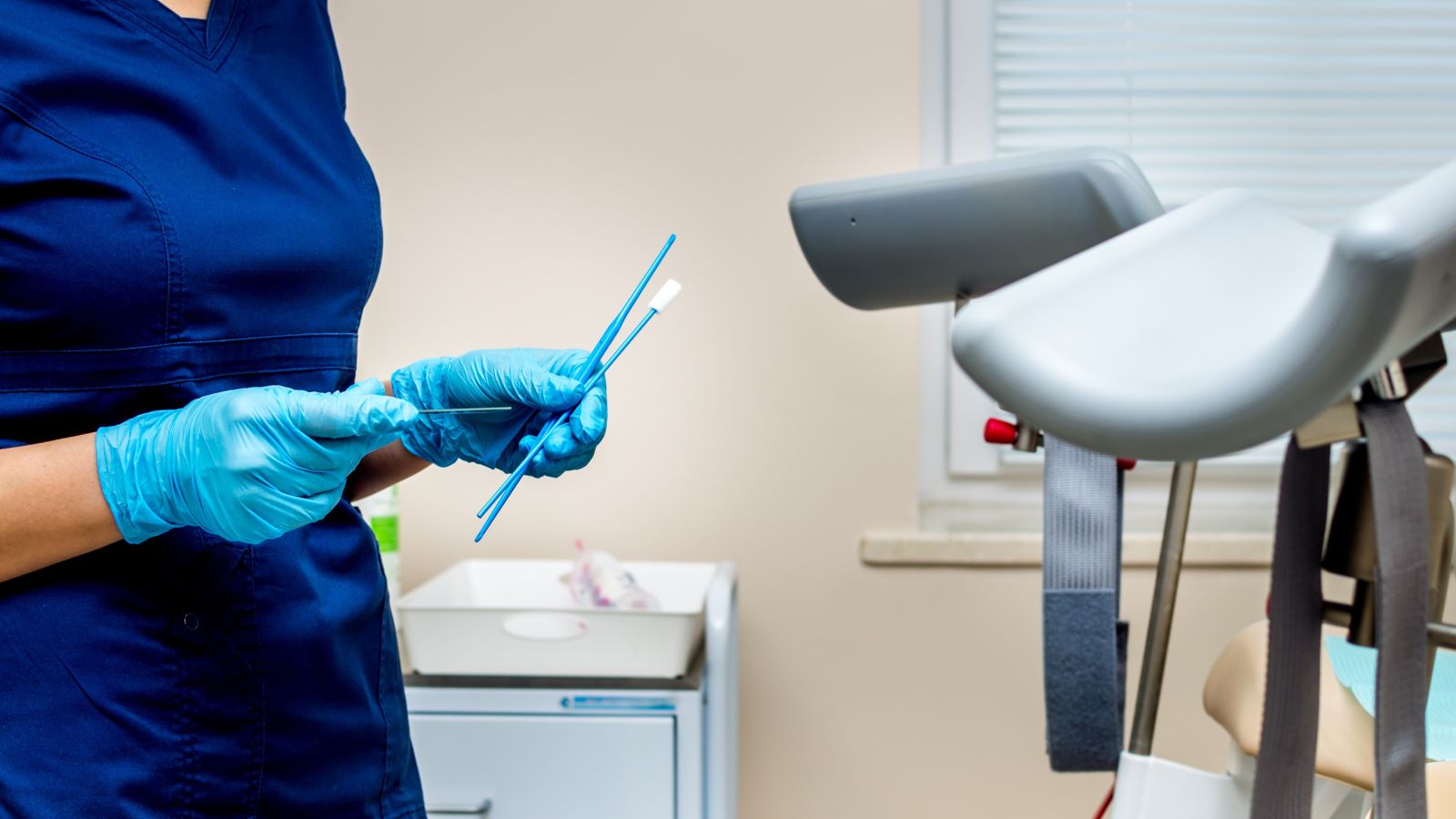<< Back
How Do Pap Smears Prevent Cervical Cancer?

January 19, 2024
Cervical cancer is a preventable disease, yet it’s the fourth most common cancer worldwide. More than 570,000 women each year are affected.
While cervical cancer is less common in the US because of Pap smears, this important test doesn’t always happen.
“Unfortunately, half of all women diagnosed with cervical cancer in the United States have never had a Pap smear performed,” says Jonathan Cosin, MD, the chief of Gynecologic Oncology at The Hospital of Central Connecticut. “If a woman doesn’t get Pap smears, precancerous changes can’t be identified and may progress to cancer.”
Here’s how pap smears can protect yourself or a loved one from cervical cancer, according to Dr. Cosin.
Prevention starts with a Pap smear test.
During a Pap smear test, your doctor collects a small sample of cells from the surface of the cervix. The sample is spread on a slide (Pap smear) and examined in the lab.
“We primarily look for precancerous lesions of the cervix,” explains Dr. Cosin. “When we identify and treat these, we can prevent them from becoming cancer later. However, not all abnormalities of the cervix are precancerous, and not all need to be treated.”
Are you due for your Pap?
Dr. Cosin shares the latest guidelines:
- Women generally should begin Pap smear screening at age 21.
- Women with normal Pap smears need a Pap smear every 3 years between ages 21-29.
- From ages 30-65, women can either have a Pap every 3 years or have a combined Pap and HPV (Human papillomavirus) testing (or just HPV testing) every 5 years.
- Most women with a long history of normal Paps can stop screening at age 65.
- Women who have had a hysterectomy (removal of the uterus and the cervix) don’t need Pap smears unless they had a hysterectomy because of a problem related to an abnormal Pap smear.
> Related: 3 Things You Should Know About Pap Smears and Cervical Cancer
Early cervical cancer has no symptoms.
In the US, cervical cancer most commonly impacts women between 35-50. More than 20% of cases occur in women over 65.
Cervical cancer occurs when cancer cells start growing in the tissues of the cervix and usually grow slowly.
“Early cervical cancer has no symptoms, and we can treat it more easily,” says Dr. Cosin. “Once symptoms develop (i.e., pain, abnormal bleeding, bleeding after sex, abnormal discharge), the cancer is usually more advanced and requires more treatment.”
High-risk HPV causes 99% of cervical cancer worldwide
“High-risk HPV subtypes contain proteins which, once inside a cervical cell, can turn off tumor suppressor genes,” explains Dr. Cosin. “This can allow the cervical cells to grow too much and develop other changes that can lead to cancer.”
However, HPV alone does not cause cervical cancer, and most women with HPV infections never get cervical cancer.
“Other changes must occur for this to happen,” says Dr. Cosin. “Risk factors that make this more likely are things like immunosuppression (i.e., HIV, other diseases, medications) and smoking.”
> Want more health news? Text StartHere to 85209 to sign up for text alerts
4 ways to protect yourself from cervical cancer
Dr. Cosin shares simple steps for prevention:
- Get your HPV shot. “By preventing the HPV infection, you remove the primary cause. HPV vaccines work best by preventing HPV infections before exposure. Since the HPV virus is sexually transmitted, it’s ideal to have the vaccination early,” explains Dr. Cosin. The recommendation for the HPV vaccination is for all genders, ages 9 to 13. While boys can’t get cervical cancer, HPV can cause penile cancers. You can still get vaccinated even if you’re over 13; just ask your gynecologist or pediatrician.
- Limit your exposure to HPV. “Unfortunately, HPV infections are very common, and avoiding it completely is difficult,” says Dr. Cosin. “Condoms provide some protection. However, the more sexual partners you have, the more likely you’ll have HPV exposure.”
- Quit smoking. Smoking is a known risk factor for cervical cancer because it suppresses your immune system.
- And, most importantly, get your Pap. “Regular Pap smears are extremely important,” emphasizes Dr. Cosin. “Precancerous lesions of the cervix are much easier to treat. Treating them has been proven to reduce the risk of cancer developing. Women who have a history of abnormal Paps or other risk factors for cervical cancer may need screenings more frequently.”
You should also stay in close contact with your doc, adds Dr. Cosin. “Even if you aren’t due for a Pap smear, see your gynecologist yearly.”